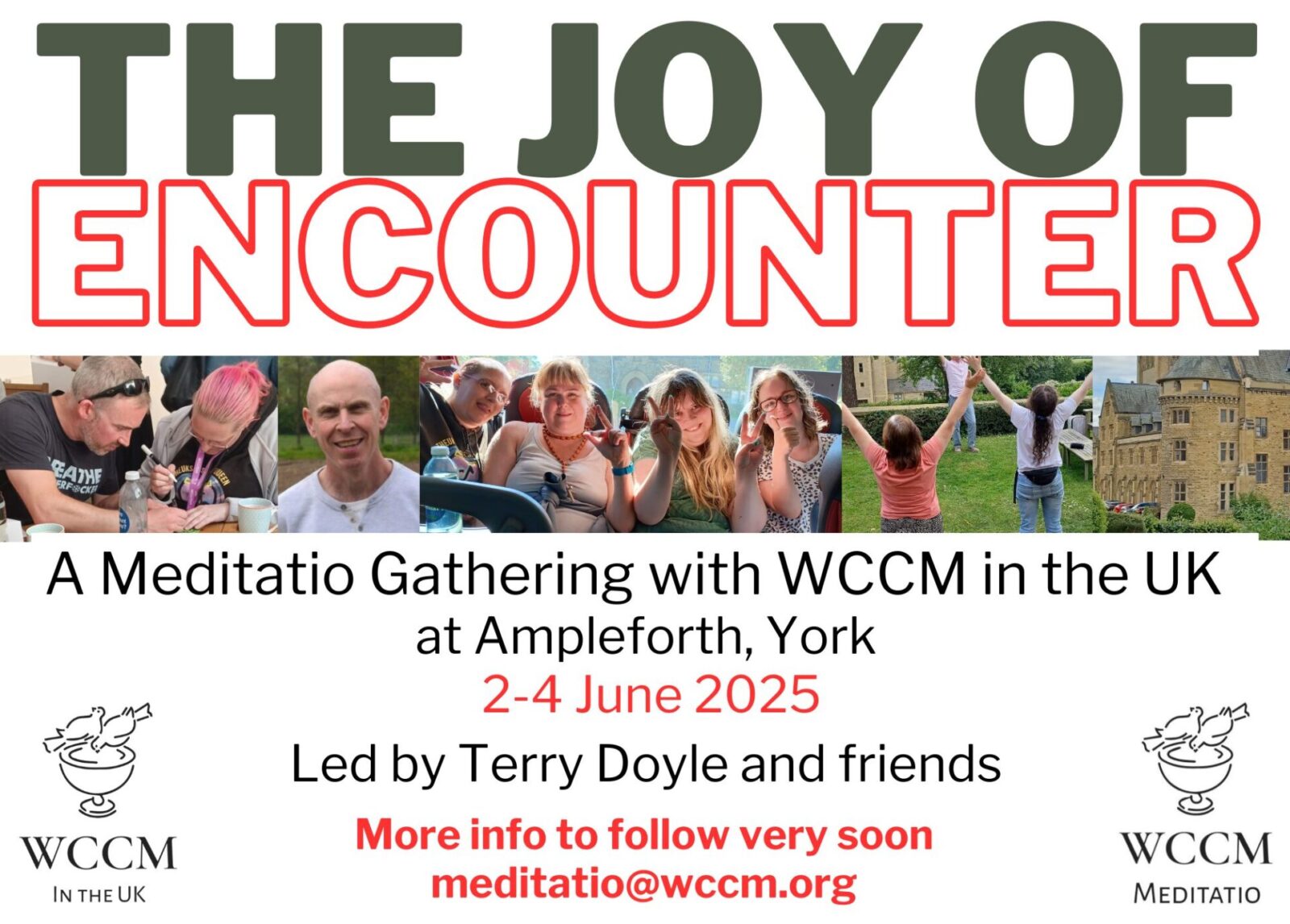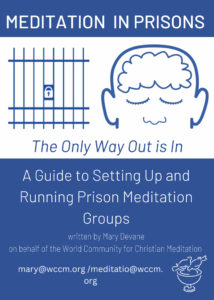Meditation & Social Justice
-
About
There is no peace without justice. The experience of peace we find in meditation awakens our conscience and strengthens our courage, supporting a commitment to work for justice at all levels.
In a world of increasing political polarisation and violence, socio-economic injustice and corruption, the WCCM outreach tries to stimulates awareness of how interior and external values relating to authentic peace are related. From this insight we come to see how the daily practice of meditation contributes to social and global change – one person at a time. Personal and social transformation go hand in hand.
Meditators in the community bring the gift of peace to those who suffer injustice by making them feel valued and defended – the homeless and marginalised, those trapped in poverty and prisoners. Social justice depends on dedicated workers who do not burn out or become so angry that they lose their balance and authority.
-
Meditation and Those on the Margins
Despite the common media image, meditation is not restricted to the affluent. The World Community has long been involved in bringing meditation to the poor, the neglected and those pushed onto the margins of society. Not only can it bring them hope and courage from discovering their own inner resources and dignity. It also stimulates social change by bringing the haves and have-nots closer together. It is, in fact, a kind of “silent revolution” of justice and peace that starts in the heart of each of us.
The World Community teaches meditation in many different classes of society, including the following programs:
Boston (USA) – Meditation with the Homeless
Middlesbrough (NE England) Meditation with People on the Margins
Austin, TX (USA) Centre for the Survivors of Torture
Sao Paulo (Brazil) Meditation with Children rescued from abusive parents
News
Videos
Below is a taste of what happened at the previous Joy of Encounter Retreat- so you know what to expect! We cannot wait to share the JOY with you in 2025.
-
Meditation in Prisons
Meditation is being taught in prisons throughout the world every day. We have a desire to bring people into the fruits of meditation (inner peace, joy, and clarity) amid the terrible circumstances of prison life. Those who bring the teaching of meditation to prisoners feel it is a special grace and privilege, and prisoners report how powerfully meditation helps them to transform the negative and oppressive aspects of their lives into a new liberty of spirit.
Prisoners have been meditating for many years. For them, meditation is not simply an escape from the conditions of confinement, but also a way of reaching inside, exploring their emotions, and healing. For those who are physically incarcerated, living in a prison somewhere, their community is not unlike the early monasteries of the Church. And like the early monasteries, prisoners have time alone and time with other inmates. They can meditate in groups with others, or when alone in the cell. It can reduce stress, bring greater clarity, and even help prisoners deal with their own, personal issues.
Experience has shown that meditation in prison is more sustainable for inmates if it is introduced as part of a pre-existing program such as religious studies or restorative programs. By sharing their prison meditation experiences and by encouraging the inmates to do the same, WCCM members can create a network that strengthens everyone’s personal meditation practice.
Meditation does not promise to free us from this prison. Rather, it offers us a way of walking through it, a way of maintaining contact, not so much with the world in which we are, but the world from which we are. We become more mindful of it, more mindful of our relationship with it. We are not just made aware of it, but with continued meditation, we stay aware. James Bishop, Former International Coordinator for Meditation in Prisons
Meditation in Prisons Toolkit
Videos
Below is the recording of one of the Meditation in Prison Forums we had recently called ‘The only Way Out is In’. There forums were set up to encourage and inform meditators in WCCM to get involved in meditation in prisons. They were led by Mary Devane, the Meditatio International Coordinator for Prisons.
-
L’Arche/WCCM Interaction
The World Community also has a special relationship with L’Arche, the international community dedicated to the well-being of those with learning disabilities.
“What is it that we need most in the world?” We may ask what puts us on the path of loving and of being loved. L’Arche/WCCM Interaction offers an answer to that question. The international network of L’Arche homes bring together those with and without intellectual disabilities, to live in a community of transformative relationships. The international network of Christian Meditators practice a contemplative tradition, a meditative practice of selflessness that is inclusive, disciplined, and other-centered.
In the introduction to our Interaction workbook, SILENCE AND ENCOUNTER: Meditation in L’Arche, Laurence Freeman writes:“The friendship and collaboration between L’Arche and the World Community for Christian Meditation . . . can teach us much about the essential values needed to rebalance our turbulent world: interiority and relationship, contemplation and service.
“We are both contemplative communities. We would add, we are also both active communities. We approach the center from different angles but there, in the heart of the human, we find a love that always shares itself. L’Arche represents the transformative power of compassion released by caring for the dignity of those who are marginal in this world. The World Community represents the power of love, touched in stillness and silence that overcomes the fear and isolation that block compassion and so keeps us from enjoying the fullness of life with others.
The L’Arche/WCCM Interaction working group includes people from both communities from around the world. Our working group meets and meditates together weekly online. The fruit of our recent endeavors is the writing and publication of SILENCE AND ENCOUNTER, as well as its distribution to communities in Canada, the US, the UK, France, and the Czech Republic, with more countries to come. We are focussed on encouraging and supporting people who are using the workbook to facilitate Christian Meditation groups in their own communities.
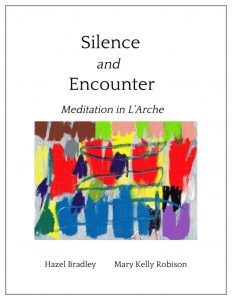
To download a PDF of SILENCE AND ENCOUNTER, click HERE
To find out more about L’Arche/WCCM Interaction, including how to join our weekly online meditation sessions contact Mary Kelly Robison at larche.interaction@wccm.org
Hazel Bradley is a member of L’Arche London, as well as co-author of SILENCE AND ENCOUNTER. She is facilitating a reflection on the spirituality of L’Arche and Hinduism at present. In this video from December, 2018, Hazel shares her experiences of prayer life woven into the fabric of L’Arche communities in India. While the prayer she speaks of is in the Hindu tradition, her observations make a moving plea for us all to be aware of how contemplation nurtures community.
Sister Benedict and Sister Aelred were assistants – at separate times – in the early years of L’Arche Kent (UK). Their lives were touched by John Grist, a man who had Downs Syndrome and was non-verbal. Through encountering him in his depths, they each discovered the nature of contemplation, and their own call to be contemplative sisters in the Benedictine tradition. In this video they share something of the importance of John Grist in their lives.
-
Talks
The Gay Margins

One In Christ with James Alison & Sarah Bachelard
Why do LGBTQI people feel excluded by the Churches? With Sarah Bachelard and James Allison, The Meditatio Centre London, 15
David’s Place: friendship and spiritual nourishment to the marginalised
David’s Place is an inner city space in Sydney, Australia, where homeless and marginalised can come to find friendship, peace,
Interfaith Meditation for Peace at Manchester Cathedral
By David McKenna LISTEN TO THE TALK BY LAURENCE FREEMAN: Fr. Laurence opened the day with a talk that
Unlocking Freedom and Joy
James Bishop and Daniel Fox both spoke at St. John of the Cross Parish Center in Western Springs, Illinois on

One In Christ with James Alison & Sarah Bachelard
Why do LGBTQI people feel excluded by the Churches? With Sarah Bachelard and James Allison, The Meditatio Centre London, 15
David’s Place: friendship and spiritual nourishment to the marginalised
David’s Place is an inner city space in Sydney, Australia, where homeless and marginalised can come to find friendship, peace,
Interfaith Meditation for Peace at Manchester Cathedral
By David McKenna LISTEN TO THE TALK BY LAURENCE FREEMAN: Fr. Laurence opened the day with a talk that
Unlocking Freedom and Joy
James Bishop and Daniel Fox both spoke at St. John of the Cross Parish Center in Western Springs, Illinois on
-
Videos & Seminars
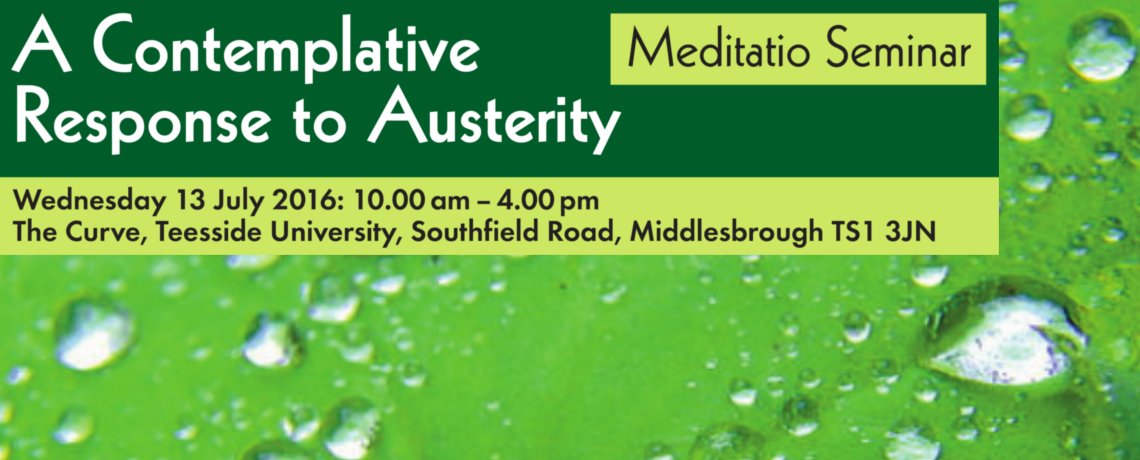
A Contemplative Response to Austerity
Teesside University, Middlesbrough on 13 July 2016 Part I: Anglican Bishop of Whitby, The Rt Revd Paul Ferguson opening the
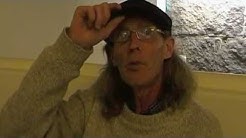
Meditation & the Poor
Fr. Laurence spent Wednesday 11 April with a group of meditators,many of whom are or have been homeless, in Boston.
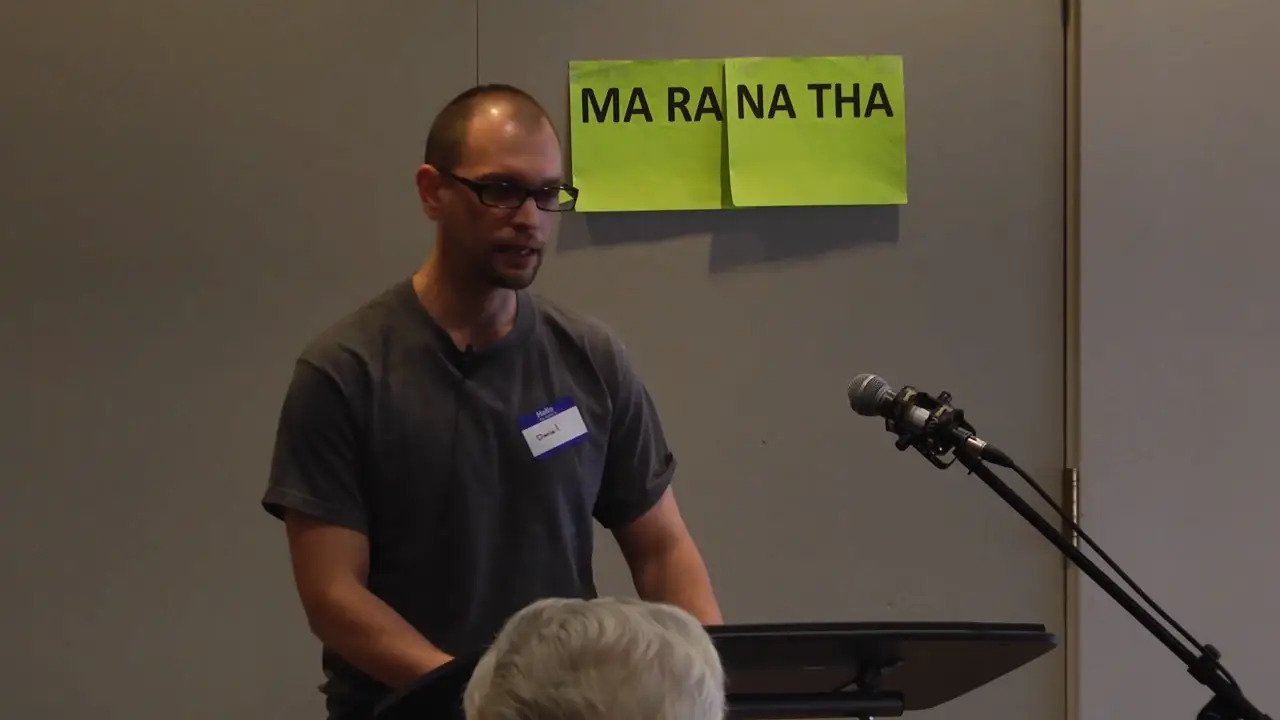
Stories from Prison
Morning of Meditation – Unlocking Freedom and Joy – Christian Meditation in PrisonGuest Speaker: James Bishop (International Coordinator for Prison

A Contemplative Response to Austerity
Teesside University, Middlesbrough on 13 July 2016 Part I: Anglican Bishop of Whitby, The Rt Revd Paul Ferguson opening the

Meditation & the Poor
Fr. Laurence spent Wednesday 11 April with a group of meditators,many of whom are or have been homeless, in Boston.

Stories from Prison
Morning of Meditation – Unlocking Freedom and Joy – Christian Meditation in PrisonGuest Speaker: James Bishop (International Coordinator for Prison
-
Resources for Purchase
-
Contact

Social Justice

Meditation in Prisons


